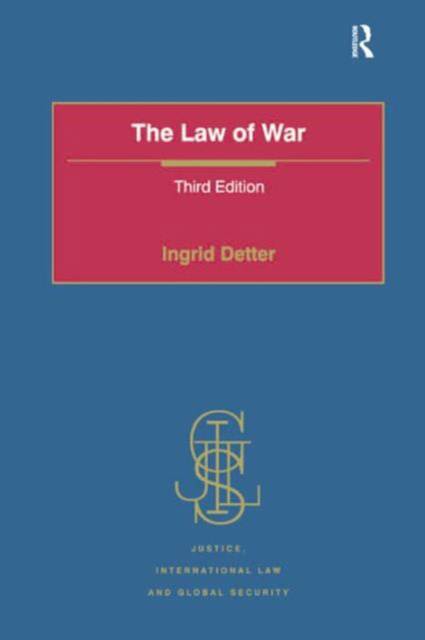
- Retrait gratuit dans votre magasin Club
- 7.000.000 titres dans notre catalogue
- Payer en toute sécurité
- Toujours un magasin près de chez vous
- Retrait gratuit dans votre magasin Club
- 7.000.0000 titres dans notre catalogue
- Payer en toute sécurité
- Toujours un magasin près de chez vous
202,95 €
+ 405 points
Format
Description
The third edition of Ingrid Detter's authoritative work explores the changing legal context of modern warfare in light of events over the last decade. Ingrid Detter reviews the status of non-State actors, as individuals and groups become more prominent in international society. Covering post 9/11 events and the resulting changes in the ethos of war, the author analyses the role of military companies and examines what their legitimacy means for international society. The edition also discusses certain 'intrinsic' rules in the Law of War, such as rules giving individuals the right to be spared genocide, torture, slavery and apartheid and assure them basic democratic rights. The author questions the right of 'illegal' combatants to be treated as prisoners of war and suggests that a minimum standard must be afforded to all, whether captured dictators or detainees suspected of terrorism. In the modern world, the individual (the soldier, the civilian, the dictator, the terrorist or the pirate) can no longer behave as they wish. Further new topics include 'target killings', the 'right to protect' ('R2P', - claimed to be a new form of intervention), the use of unregulated weapons such as drones and robots, the war scenario in Outer Space and cyber crimes. There is also a discussion of new developments in the field of war crimes including severe criticism of the novel concept 'joint criminal enterprise' (JCE), which, in the opinion of the author, undermines the Rule of Law. This updated and expanded edition will be of use to statesmen, scholars and students of international relations and international law.
Spécifications
Parties prenantes
- Auteur(s) :
- Editeur:
Contenu
- Nombre de pages :
- 568
- Langue:
- Anglais
- Collection :
Caractéristiques
- EAN:
- 9781409464952
- Date de parution :
- 16-08-13
- Format:
- Livre relié
- Format numérique:
- Genaaid
- Dimensions :
- 175 mm x 246 mm
- Poids :
- 1209 g

Les avis
Nous publions uniquement les avis qui respectent les conditions requises. Consultez nos conditions pour les avis.






